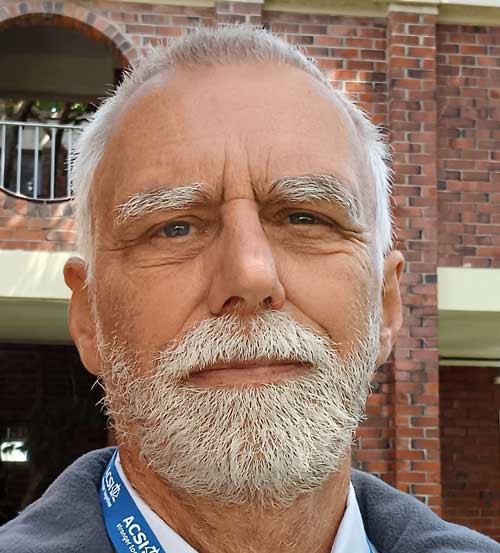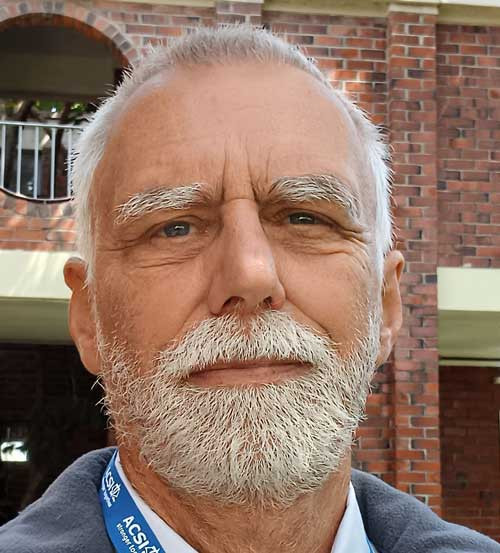
The scene: A primary school speech night. The guest speaker calls for two volunteers and to no-one’s surprise many of the children put their hand up. As the children confidently make their way up onto the stage to join the speaker, he wonders allowed why children are always so quick to volunteer, especially when they do not know for what they are volunteering – after all, they might be asked to do something they do not want to do or cannot do. The speaker also wonders aloud why it is that children are so quick to put their hand up, but adults are not! Perhaps the parents are thinking that as it is the children’s night, they must let the children to volunteer and not spoil their evening – (or perhaps it is just that adults nowadays do not volunteer, full stop).
The two young volunteers stand either side of the speaker who turns to the boy and asks if he has any money. When the boy says “No”, the speaker passes him some $1 notes and says, “Here you are. Count it”. The boy smiles nervously (he thinks there must be a catch to this) but dutifully counts it. “How much is it?” The boy quietly replies “$5”. The speaker asks him if he is happy and the boy smiles awkwardly and mumbles, “yes”.
The speaker turns to the girl on his other side and asks if she has any money and on finding out (no surprise) that she does not, he gives her a bundle of notes and asks her to count it. Shyly, she does so and says softly “$10” with a growing smile on her face. “Happy?’ the speaker asks. She nods. The speaker turns to the boy and asks him “Happy…?” The boy thinks for a moment, this time with a half-smile only. He knows he has to say he is but he is not so sure and does not want to show it.
The speaker asks the boy how much he has and he says “$5” and he asks the girl to say aloud how much she has and she says “$10”, then he turns to the other children in the audience and asks them “Who has more?” The children cry out immediately (they are smart, after all!), loudly, excitedly, “The girl!” The speaker asks them “Are you sure? Really? Think carefully: who has more?” Again, the children shout out, “the girl!” The speaker then signals to them to quieten down and says “No, you’re all wrong.” The children look puzzled. “They both do,” the speaker says. “They both had nothing, but both have more now.” There are grudging moans from the children in the audience!
The speaker then moves on and says, “It’s good to give, isn’t it? I gave!” After the two children agree he asks the boy to count his money and give him $5, which he does, leaving him empty-handed and a little disappointed. The speaker then asks the girl to give him $7 which she does, leaving her with $3. The speaker then asks the children in the audience which child gave more. Immediately, undeterred by their previous failure, they all shout out confidently that the girl did – after all, they go to school and 7 is more than 5! Once again, the speaker says, “No, I’m sorry, but you are wrong again.” Again, the children look puzzled. “The boy gave more,” he said, before adding, “because he gave everything that he had, but she only gave some of what she had. So he gave more” Oh!
Once again, the speaker tested the children and said, “If the girl here got 80% last year and this year got 85% while the boy here got 40% last year and 65% this year, who did more?” With slightly less confidence this time, the children pointed to the girl – after all 85 is more than 65. “Are you sure? The speaker asked. It was clear they were not so sure, but they still nodded; they checked the maths and knew that 85 was more than 65. “Yes, it was the girl!” they muttered. “Sorry, but you are wrong again! The speaker quietly said. “The girl only improved 5%, but the boy improved 25% - 25 is greater than 5, isn’t it…?”
The speaker then began to wrap his speech up and explain the point he was making. “We tend to look more at ‘who has more’ (or who gets more) instead of ‘who gave more’ (or who did more) when it comes to academics and sport. Some children are gifted with more natural talent (they are born with talent; they are given it, like the children were both given money) so have more but the key point for us all is whether we each of us give all of what talent we have, in our efforts and practice. Some children might get higher marks than others but they may not have progressed as much as others who have scored less. Schools must reward all who do and give of their best.”
- Tim Middleton is the executive director of the Association of Trust Schools [ATS]. The views expressed in this article, however, are solely those of the author in his private capacity and do not necessarily represent the views of the ATS.
- Email: [email protected]
- website: www.atschisz
- Paranoid Zanu PF regime cannot be trusted with solving Zim’s problems
- Zim’s poor batting hands India series
- Raza opens up on career threatening cancer scare
- Chevrons to maintain fearless approach against India











